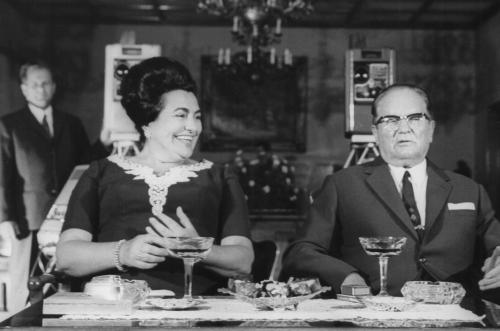


DOK Leipzig News

DOK Leipzig will host its 65th edition in local cinemas and venues once again — a decision that signals the festival’s continued commitment to bringing back cinema culture and shared festival experiences.
From 17 to 23 October, DOK Leipzig will screen new documentary and animated films from around the world, along with creative XR works and thematic film programmes. The team looks forward to welcoming numerous international filmmakers and guests to Leipzig, where works will be explored with audiences at film talks and master classes. Turning the focus back to on-site events is the festival’s response to the need for direct exchanges among visitors and industry professionals — which were missing in the last two years due to pandemic adjustments.
However, some of the online features will continue in a reduced format, including recorded film talks. Selected films will again be available on demand throughout Germany via “DOK Stream” following the festival, with this year’s lineup focusing on the award winners.
DOK Industry is also prioritising a return to physical attendance at events for film professionals. Some areas will still be accessible online, such as livestreams of project presentations and talks, along with two days of post-festival digital networking for participants.
As in previous years, this year’s festival poster design was created by Leipzig graphic artist Stefan Ibrahim. It features the key to an old East German-style lock, which many audience members may still recognise. Further key imagery will be sprinkled throughout the festival’s in-person and online offerings for audiences to discover.
“We deliberately allowed for many interpretations with our design,” festival director Christoph Terhechte says. “The films and works in our programme are united by their curiosity about the world. They open up new perspectives and previously unknown worlds, so to speak. But the key is also always a symbol of home — people who have to leave their homes often keep their apartment key as a symbol of connection to their home, their origins and past. As a festival with an East German history, we opted for a key style from the German Democratic Republic.”
A number of festival themes have already been selected. DOK Leipzig will emphasise its long-standing connection to Eastern Europe with a programme of current feature-length films that offer insights into life in the region’s countries. The festival will also increase support for networking among documentary and animation filmmakers through new formats. Additionally, four of the programmes will explore the different artistic styles of animated film.
This year’s Retrospective will focus on documentary works by female filmmakers from the GDR. The Homage is dedicated to renowned Serbian documentary filmmaker Mila Turajlić, whose work explores the historical significance of moving images. Two other programmes feature films that address the climate crisis, resource scarcity and environmental activism.
From today through 15 July, festival fans can secure Early Dove accreditation at a discounted rate for access to film screenings, talks with inspiring guests and industry events.
Free tickets for film screenings are available to anyone who takes part in DOK Leipzig’s audience survey. The festival wants to get to know viewers better by gathering feedback from past and future visitors. The English version of the survey is available from 20 June via dok-leipzig.de.
Films and XR works can still be submitted until 1 July. The deadline for the DOK Co-Pro Market is 21 July.